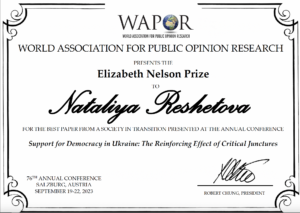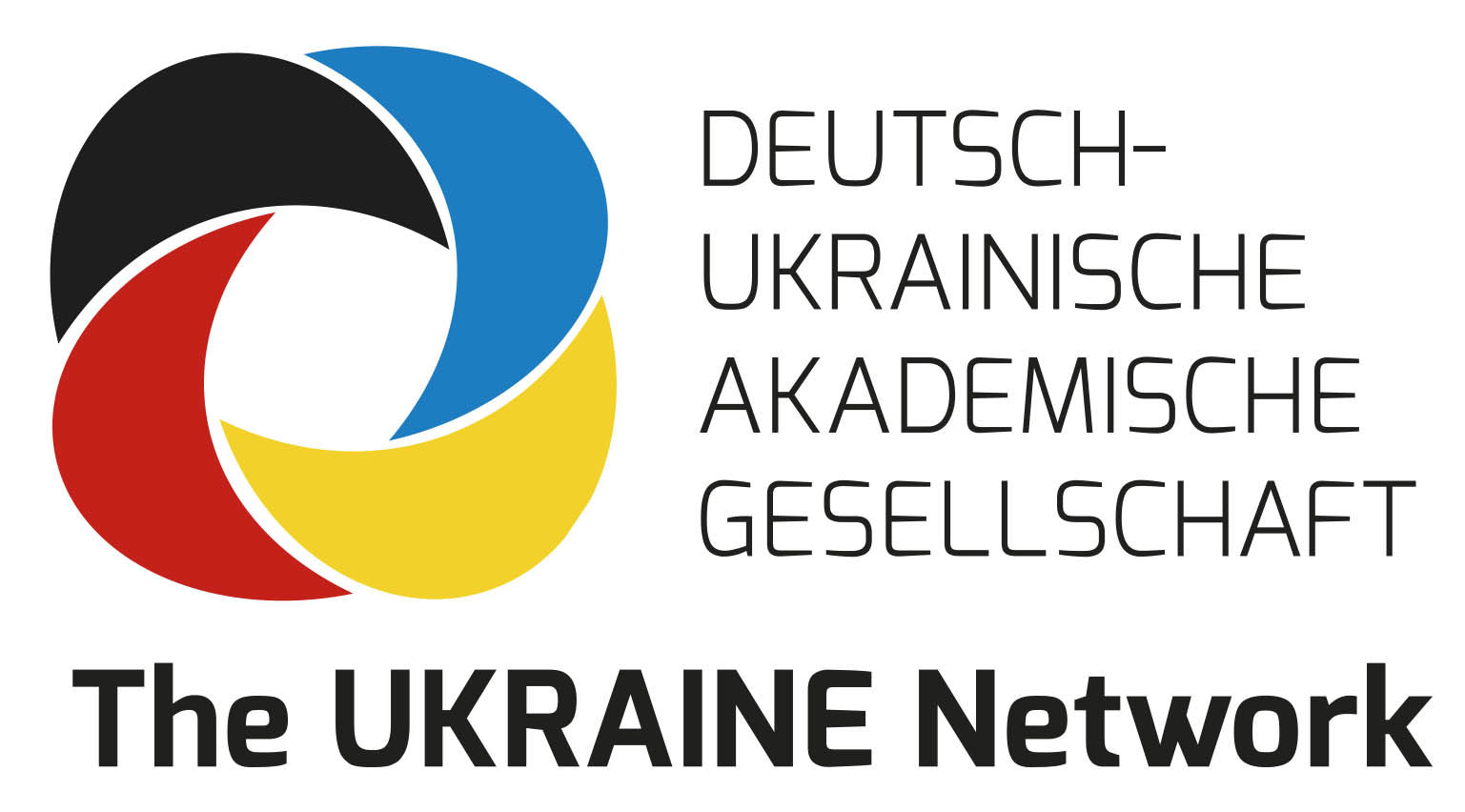Dr Nataliya Reshetova was awarded the Elizabeth Nelson Prize for the Best Paper from the Society in Transition, and was presented the award at the 76th annual World Association of Public Opinion Research (WAPOR) conference, Salzburg, Austria on September 19-22, 2023. The paper “Support for Democracy in Ukraine: The Reinforcing Effect of Critical Junctures” was co-authored with Prof. Dr Malina Voicu. In September 2023 it was published as a Chapter ‘Support for the Democracy in Ukraine’ of the book “Social Values and Identities in the Black Sea Region”.

The paper was started in very difficult and challenging circumstances in Ukraine during the electricity blackouts, constant shelling, air-rade sirens, with a multitude of deadlines, multitasking and overloads at work. Nataliya is grateful to the GESIS – Leibniz-Institut für Sozialwissenschaften, which provided her the opportunity to carry out the research on the topic that assisted her in finalizing the paper.
The paper examines the nexus between the development of the democratic political culture in Ukraine and the consolidation of the national identity, building on the path-dependency approach and showing how several critical junctures (The Revolution on Granite (1990), The Orange Revolution (2004-2005), and The Euromaidan, which led to The Revolution of Dignity (2013-2014)) reinforced support for democracy as the political protests led to positive outcomes, the demands of the protesters being fulfilled. Moreover, each juncture made democracy more salient as political participation, residing in political protest, had a positive outcome, legitimizing democratic political institutions as they proved to be effective and to lead to the expected result. Moreover, as national identity developed as part of the same process, political participation and support for democracy became part of the core national identity, distinguishing between “us” and “them”. Using survey data coming from large-scale surveys, collected in Ukraine between 1990 and 2020 and employing changing Parameter Models, the study shows how support for democracy was reinforced by each critical juncture that involved political participation, boosting national identity that developed more as civic identity encompassing all those willing to share the same democratic values. On the 23rd of November Nataliya will present this research outcome at GESIS – Leibniz-Institut für Sozialwissenschaften.

In 2016–2017, Natalia was a postdoctoral researcher at GESIS — Leibniz Institute for Social Science in Cologne, Germany. She was a visiting scholar at the University of Melbourne at the School of Political and Social Sciences in 2019. In autumn 2021, she was on a DAAD re-invitation program for the scholars at GESIS. Throughout her research career Nataliya carried out the investigation on the democracy in Ukraine and relevant indicators. Nataliya has performed research on Ukrainian language and its effect on the support for the democracy in Ukraine. Her areas of expertise are hybrid democracies, democratic performance, international cooperation and cultural awareness.
When the war started, Nataliya became a coordinator of the Network for Solidarity of Ukrainian Catholic University (UCU) which generated 345 scholarships for Ukrainian students and professors in time of war. She has been publishing in international blogs (UDeusto, GESIS) on the invasion of Ukraine bringing to light important topics. Nataliya worked at Ukrainian Catholic University (UCU) and Business School (LvBS) supporting internationalization there: coordinating international academic projects, and establishing partnerships. Currently, she is giving lectures at CBS International Business School on International Relations, Democracy, Research, Intercultural Communication and Emotional Intelligence.
